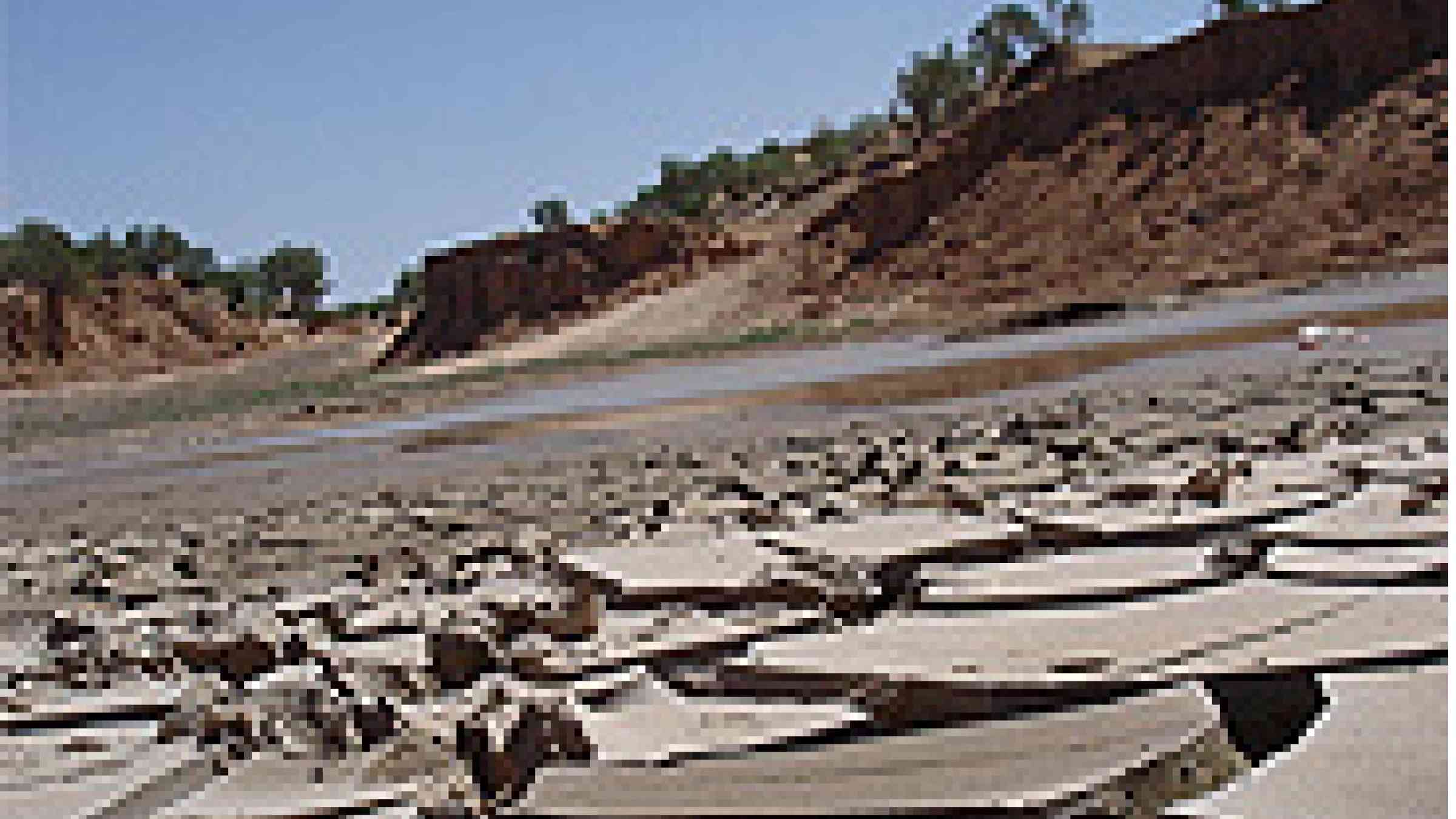WMO: International experts to recommend standard drought indices

WMO press release no. 870
Geneva – In light of climate change, the frequency and severity of droughts are likely to increase. New developments in indices and early warning systems for droughts are key components for mitigating their impacts. More than 60 scientists from all regions are meeting this week in Lincoln, Nebraska (USA) to recommend standard drought indices for various types of droughts and to develop guidelines for countries in implementing and improving drought early warning systems.
There have been several intense droughts and heat waves in recent years, such as those in Europe in 2003, southeast Australia in 2009, and Argentina in 2008/09, which have increased the concern that droughts may be increasing in frequency. In February 2009, the Australian Bureau of Meteorology noted that: “The combination of record heat and widespread drought during the past five to ten years over large parts of southern and eastern Australia is without historical precedent and is, at least partly, a result of climate change.” This increase in Australian droughts could be a temporary climate event lasting 10 to 30 years. But the recent increase of drought and heatwaves in Australia is consistent with the WMO/UNEP Intergovernmental Panel on Climate Change (IPCC) Fourth Assessment Report, which stated that the world has been more drought-prone during the past 25 years.
From 8 to 11 December 2009, international experts from the National Meteorological and Hydrological Services (NMHSs), climate and agricultural research institutes, universities and environmental monitoring organizations are participating in the Inter-Regional Workshop on Indices and Early Warning Systems for Drought organized jointly by the World Meteorological Organization (WMO) and the US National Drought Mitigation Center (NDMC) at the University of Nebraska. The workshop is co-sponsored by the U.S. National Oceanic and Atmospheric Administration (NOAA), U.S. Department of Agriculture (USDA), and the United Nations Convention to Combat Desertification (UNCCD).
“There is a critical need to establish best practices for drought early warning systems throughout the world. This requires that we develop a better understanding of the tools and data sources that are important components of these systems. Drought is a serious problem in virtually all countries. Projected changes in climate for many regions suggest that droughts are likely to become more frequent, of longer duration, and more severe. Our ability to lessen or mitigate the impacts associated with drought is contingent on putting in place comprehensive early warning systems. This workshop will be an excellent first step in reaching that goal”, said Dr Don Wilhite, Director and Professor, School of Natural Resources of the University of Nebraska, at the opening of the workshop.
Mr Mannava K. Sivakumar, Director, Climate Prediction and Adaptation Branch, WMO, stressed that: “Early warning systems for drought allow individuals and communities to act in sufficient time to reduce the possibility of loss of life, personal injury, and damage to property and fragile environments. Through WMO, there is global availability of real- and near-real-time weather and climate information which is essential for early warning activities. In this regard, WMO and its 189 Member States and Territories operate a unique worldwide system for collection, processing, distribution and exchange of weather information and warnings.”
“The National Drought Mitigation Center at the University of Nebraska has established a strong national and international reputation for its drought monitoring, mitigation, and planning efforts. I can think of no better venue for this meeting and applaud the efforts of WMO, the NDMC, and the other sponsors of this important event for organizing this workshop”, said John Owens, Vice-Chancellor, Agriculture and Natural Resources, University of Nebraska.
For more information, please contact:
Ms Carine Richard-Van Maele, Chief, Communications and Public Affairs, WMO, Tel: +41 (0) 79 406 47 30, E-mail: cpa[at]wmo.int
Ms Gaëlle Sévenier, Press Officer, Communications and Public Affairs, Tel. +41 (0) 22 730 8417, Fax: +41 (0) 22 730 8027, E-mail: gsevenier[at]wmo.int